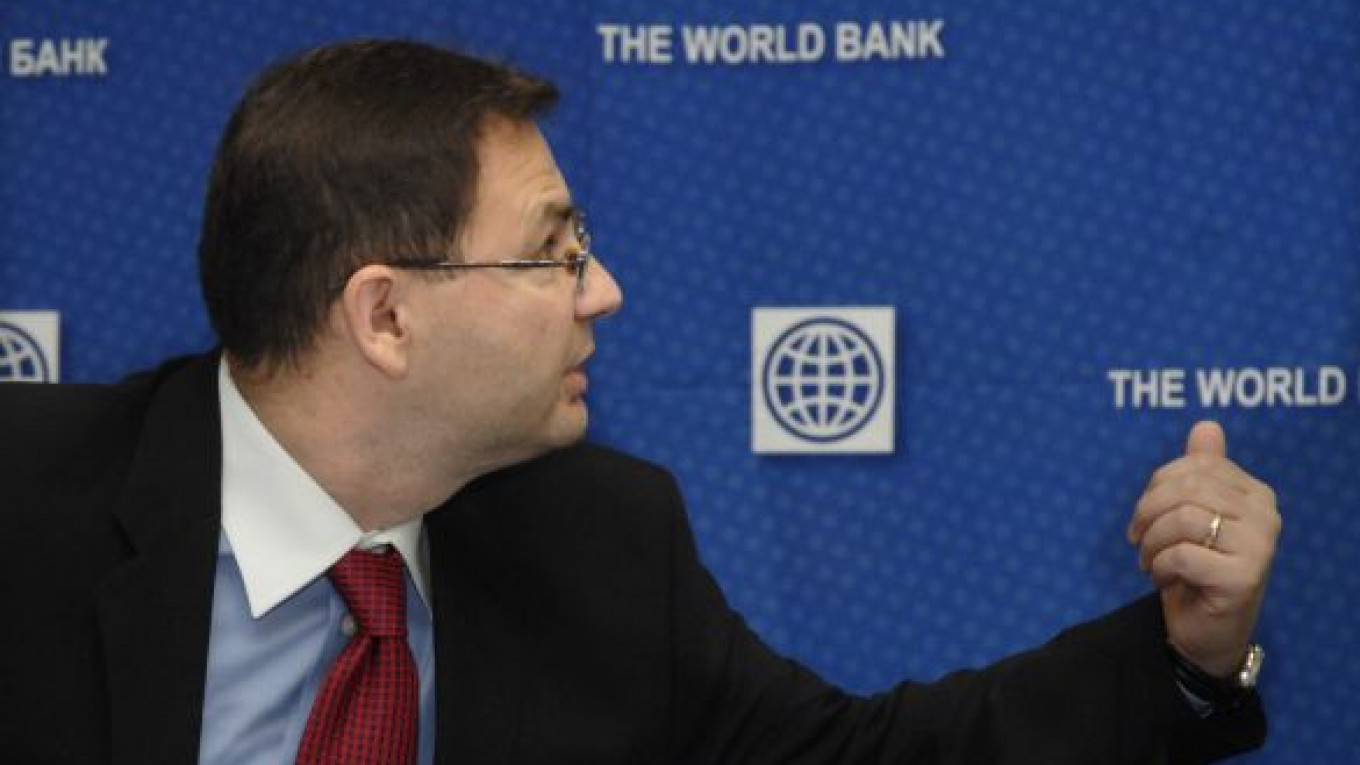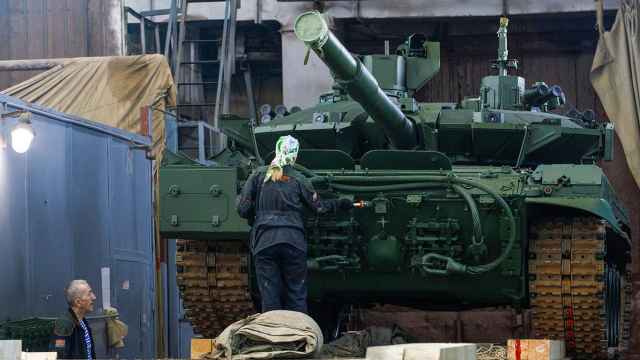The World Bank cut its forecast for Russia's economic growth and warned on Tuesday of risks from inflation, pre-election spending pressures and the high level of oil prices factored into the budget.
With ample banking sector liquidity and higher than previously expected inflation, the Central Bank may also need to react with tighter monetary policy before the end of the year, said Zeljko Bogetic, the World Bank's lead economist for Russia.
Russia's gross domestic product will grow 4.2 percent this year, 4.5 percent in 2011 and 3.5 percent in 2012, the World Bank said in its latest Russian Economic Report.
In June, it had forecast expansion of 4.5, 4.8 and 4.7 percent, respectively.
"The pace of economic growth in 2011 and 2012 will be constrained and will depend on sustained gains in consumption and the pace of recovery in longer term credit to the private sector, needed to facilitate growth in fixed investment," the report said.
The World Bank raised its 2010 inflation forecast to 8 to 9 percent from 7 to 8 percent, taking a more pessimistic stance than the government and factoring in a surge in food prices seen after a severe drought killed a third of the harvest.
"The inflation scare was a one-time shock but there is a lot of liquidity in the economy, and the banks are just beginning to lend so it is not conceivable … that inflation pressures could build up and … maybe it would be even prudent to rein in some of that liquidity," Bogetic said.
"If not by raising interest rates — because the interest rate channel is not very strong in this country — maybe with alternatives, such as reserve requirements. … Possibly by the end of the year they [the Central Bank] may … have to react." Russia's Central Bank left interest rates on hold in October and signaled that policy would likely remain unchanged for a few more months. Most analysts do not expect it to start raising interest rates until early 2011.
The World Bank also gave a thumbs up to the Central Bank's moves toward greater exchange rate flexibility.
A key threat to the economy is the high level of oil prices currently factored into the budget — $75 a barrel for 2010-11.
"With a high budgeted price of oil close to the current forecast, Russia's budget has lost the cushion it had in previous years, becoming more vulnerable than in the past to sudden drops in the price of oil," the World Bank said.
On the revenue side, "expenditure pressures may increase in the election cycle 2011-12," adding risk to the budget.
"Fiscal risks have increased, suggesting the need to rethink the fiscal strategy in the face of heightened uncertainty and downside risks in the oil market," the report said.
A $20 fall in the oil price next year would increase the budget deficit by 2 percentage points of GDP, it calculated. That would take the budget gap to about 5.5 percent of GDP.
"At that level of deficit, I think the financing strategy would have to be rethought," Bogetic said, adding that financing the extra gap with domestic borrowing could create inflation risks and may also lead to a crowding out of corporate players.
"It might be prudent to activate the external financing sources much more," he said.
If the risks to oil prices and spending materialize, Russia would do well to revise the 2011 budget with more conservative forecasts for oil, Bogetic said.
A Message from The Moscow Times:
Dear readers,
We are facing unprecedented challenges. Russia's Prosecutor General's Office has designated The Moscow Times as an "undesirable" organization, criminalizing our work and putting our staff at risk of prosecution. This follows our earlier unjust labeling as a "foreign agent."
These actions are direct attempts to silence independent journalism in Russia. The authorities claim our work "discredits the decisions of the Russian leadership." We see things differently: we strive to provide accurate, unbiased reporting on Russia.
We, the journalists of The Moscow Times, refuse to be silenced. But to continue our work, we need your help.
Your support, no matter how small, makes a world of difference. If you can, please support us monthly starting from just $2. It's quick to set up, and every contribution makes a significant impact.
By supporting The Moscow Times, you're defending open, independent journalism in the face of repression. Thank you for standing with us.
Remind me later.






